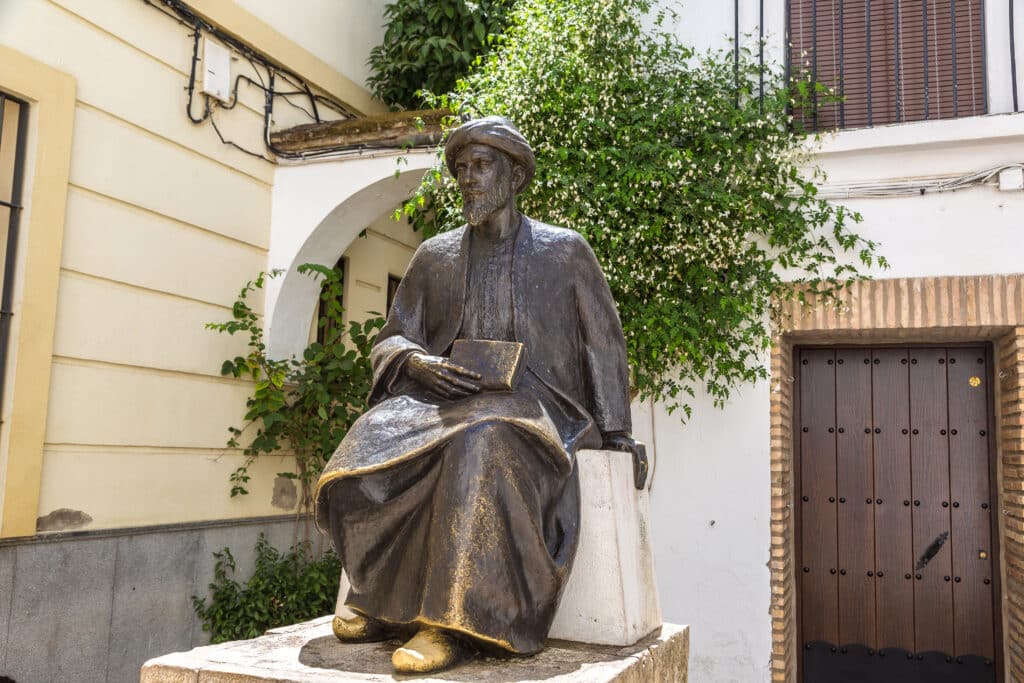What is Resurrection in the Bible?
When we think about resurrection in the Bible, we are talking about the reversal of death back to life. However, it is more than a physical change of state. It is about God showing His glory through miracles. It is about God keeping His promises, such as the messianic prophecy: “because you will not abandon me to the realm of the dead, nor will you let your faithful one see decay” (Psalm 16:10).
So, what makes resurrection so unusual then?
Most people will be born, live, and then they will die. This is the natural order that we have in an imperfect world. So, any time we encounter resurrection, it is clearly a supernatural occurrence. The Bible sprinkles in instances of the dead being raised, first in the Old Testament, and then more so in the New Testament.
It is like seeing hints in the Old Testament of a mystery that comes to full light in Jesus’ life, death and resurrection.
The Firstfruits of the Dead
But why should we focus on the resurrection of Jesus (Yeshua)? Even though He was not the first person resurrected in Scripture, Jesus’ resurrection has a unique status and fulfills a unique calling.
[The Messiah] is risen from the dead, and has become the firstfruits of those who have fallen asleep.”(I Corinthians 15:20)
In other words, Jesus is considered the firstfruits of what will become a whole harvest of the dead made alive again.
How Many Resurrections Are in the Bible?
Even though, like we just mentioned, He was not the first person to experience life after death, Jesus’ resurrection is unique among a select group of people who were resurrected in the Bible.
Some resurrection stories described in the Old Testament happened in the past. Some in the New Testament also already occurred in the past. But then, some mentioned in the New Testament are still to come.
How many resurrections does the Old Testament mention?
- The prophet Elijah resurrects a widow’s son in I Kings 17:17-22
- The prophet Elisha resurrects the Shulammite woman’s son in II Kings 4:18-37
- A body is thrown into Elisha’s grave and it is resurrected in II Kings 13:20-21
In the New Testament, how many resurrections have happened?
- Jesus resurrects Jairus’ daughter in Mark 5:41
- Jesus resurrects the young man at Nain in Luke 7:14
- Jesus resurrects Lazarus in John 11:38-44
- Unnamed believers are raised from the dead at Jesus’ death in Matthew 27:52-53
- God resurrects Jesus from the dead in Matthew 28:1-6
- Peter resurrects Tabitha (i.e. Dorcas) in Acts 9:36-42
- Paul resurrects Eutychus in Acts 20:7-12
How many New Testament resurrections are still to come?
- The rapture or resurrection of the Church in I Thessalonians 4:13-18 and I Corinthians 15:23
- The resurrection of the two witnesses in Revelation 11:7
- The resurrection of Old Testament saints in Revelation 20:4
- The resurrection of the wicked in Revelation 20:5
Jonah and the Rebirth of Israel
Two “bonus” resurrections in the Bible to consider are that of Jonah and of the land of Israel.
Jonah being in the belly of a fish for three days and then brought back to the land of the living could be enough evidence of a resurrection (Jonah 1-2, Matt. 12:40-41). And Israel being reborn as a modern country could be interpreted as a resurrection of sorts, from a land that had been desolate for generations (Ezekiel 37:11-14).
Sin, Death and Resurrection
The need for resurrection arises from each person being subject to death.
Just as people are destined to die once, and after that to face judgment, so Messiah was sacrificed once to take away the sins of many; and he will appear a second time, not to bear sin, but to bring salvation to those who are waiting for him. (Hebrews 9:27-28)
According to the New Testament, “the wages of sin are death,” and in the Torah, we see that the wages of sin were the death of an animal. Then in Hebrews, we know that we have both an eternal priest and a lasting blood sacrifice of a perfect lamb, so to speak, in the form of Yeshua (Hebrews 5:1-10).
In the context of resurrection in the Bible, through Paul’s writings, we know that “he who has died is set free from sin” (Romans 6:7) and “the last enemy to be destroyed is death” (I Corinthians 15:26).
These are some powerful promises tied to resurrection and freedom. But what about resurrection in the whole of the Bible, and in the Old Testament? How does the Jewish community and Judaism perceive resurrection?
Judaism and the Resurrection
What does the Jewish faith say about resurrection? By and large, it is a component of the faith, but it is not something the average Jewish person thinks about on a regular basis. Not all Jewish people believe in heaven, hell, or the resurrection of the dead.
This is true today, and it was true in the day of the apostles. Interestingly, in the first century, the Pharisees believed in the resurrection, meanwhile the Sadducees did not.
But sometimes, what schools of rabbinic thought lack, liturgical prayers can remedy. These prayers can span the gamut of Jewish thought and practice.
Resurrection in Jewish Liturgy
One of the central prayers of the Jewish faith is the Amidah. This prayer originates from the Second Temple Period. Amidah means “standing.” Observant Jews say the prayer multiple times a day, and it is a core part of their religious practice. The repetition helps solidify their stance–that resurrection exists, that God is in charge of it, and it is His unique power.
The prayer has 19 tenants, and it is strong on the concept of God’s power over life and death, even saying “with Your saving power You grant immortal life” and “Who can be compared to You, O Master of life and death, Source of redemption?”
Maimonides and the 13 Principles of Faith
One of the great thinkers and rabbis of Judaism, commonly known as Maimonides or The Rambam, came up with 13 Torah-based principles of the Jewish faith. He lived in the age of the enlightenment, and he valued critical thinking along with faith.
The last two principles of his set, summarized, are: “I believe with perfect faith in the coming of the Messiah; and even though he may tarry, nonetheless, I wait every day for his coming.” and “I believe with perfect faith that there will be a revival of the dead at the time when it shall please the Creator, Blessed be His name, and His mention shall be exalted for ever and ever.”
In many ways, these two statements set the tone for religious Jewish thought regarding death and resurrection. Because of these beliefs, today in Israel, Jewish hospital staff often comfort those with a loved one who passes away with something like: “your father is gone, but you’ll see him again in the resurrection.” They take comfort in the resurrection, as believers in Yeshua do.
The Messianic Age and the Mount of Olives
Most religious Jewish people believe that in the messianic age there will be a mass resurrection of the dead. This belief is consistent with Christian belief that the second coming of Jesus will bring a mass resurrection when Yeshua stands on the mount of olives.
On that day his feet will stand on the Mount of Olives, east of Jerusalem, and the Mount of Olives will be split in two from east to west. (Zechariah 14:4a)
Messianic Judaism and the Resurrection in the Bible
Many Jewish people have trouble believing that Yeshua is God and messiah, nevermind that He was raised from the dead. Because of this, Messianic Jews have tended to treat the resurrection as dessert, rather than the main meal, so to speak. The proverbial meat of their apologetics becomes Yeshua as the ultimate fulfillment of messianic prophecy. But there is room for both!
Nevertheless, without emphasizing the resurrection, we have no real reason to believe any of the prophecies. The resurrection of Yeshua must be foundational.
What Would Make Christian Faith Meaningless?
Scripture says clearly that the resurrection should be the main focus and the reality of our faith. Take these two passages from I Corinthians 15:
Now if Messiah is proclaimed—that He has been raised from the dead—how can some among you say that there is no resurrection of the dead? But if there is no resurrection of the dead, not even Messiah has been raised! And if Messiah has not been raised, then our proclaiming is meaningless and your faith also is meaningless. (v. 12-14, emphasis added)
And then there was likely an early Messianic creed represented in verses 3-5. The resurrection was the ultimate piece of evidence for the early Church.
For I delivered to you as of first importance what I also received: that Christ died for our sins in accordance with the Scriptures, that he was buried, that he was raised on the third day in accordance with the Scriptures, and that he appeared to Cephas, then to the twelve. Then He appeared to more than five hundred brothers at one time, most of whom are still alive, though some have fallen asleep. Then he appeared to James, then to all the apostles. Last of all, as to one untimely born, he appeared also to me. (v. 3-7)
The Bottom Line
Today, the bottom line for us as believers has to be Jesus’ resurrection in the Bible. That event is what gives our life and faith an anchor and standing. God reversed death so that all who believe in His son will have forgiveness of sins and eternal life in Him.
The resurrection having happened means we should be living in the power of the resurrection. If it did not, we should be looking to other sources of joy, peace and wholeness. It would mean the Bible is not true or trustworthy.
The foreshadowing of the ultimate resurrection begins in the Torah. From a biblical and rabbinic Jewish perspective, it is clear that resurrection and immortality are a central part of faith.
This should encourage those of us who know the full story all the more. We have the assurance of the resurrection. We know that Yeshua is the firstfruits of the dead, and that we are part of the harvest. Meanwhile, the power of the resurrection can be at work in us, as we share this hope that we have.
Bibliography
Herald Gandi, The Master’s Seminary Blog “According to the Scriptures”, retrieved March 18, 2024 from https://blog.tms.edu/resurrection-according-to-scriptures.
Nick Meader, Interfaith Now, retrieved March 18, 2024 from https://medium.com/interfaith-now/1-corinthians-15-3-8-an-early-creed-after-jesus-death-1c3e18992716.

God’s Perfect Plan – From Israel to You: Free PDF Download
The Bible is full of God’s promises that can encourage our faith. Together, these promises make up one master plan of God.
You’re about to discover God’s perfect plan through the lens of 25+ references throughout Scripture.
Articles Related to Resurrection in the Bible and in Jewish Thought
Estimated reading time: 9 minutes


